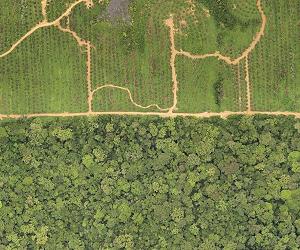USAID and NASA harness science, technology for Amazon sustainability
The U.S. Agency for International Development (USAID) with support from NASA have initiated activities for SERVIR-Amazonia, a five-year effort that will use NASA’s unique observations of Earth to address environmental and development challenges in the Amazon Basin.
Operating as a regional hub, SERVIR-Amazonia will help people and institutions use satellite observations and geospatial tools to track environmental changes, evaluate climate threats and rapidly respond to natural disasters.
By strengthening the local capacity to integrate science and technology into decision-making, USAID and NASA will support sustainability and self-reliance throughout the Amazon, home to the world’s largest tropical rain forest.
“We are thrilled with this innovative USAID-NASA partnership and the creation of a SERVIR hub in the Amazon region,” said USAID/Peru Mission Director Lawrence Rubey.
“It will combine the scientific and technological capacities of NASA with USAID’s on-the-ground development expertise. We hope it will give both government officials and indigenous peoples’ organizations the tools they need to tackle unchecked deforestation in the Amazon region.”
Funded by USAID with science and technology support from NASA, SERVIR-Amazonia will be implemented by the International Center for Tropical Agriculture (CIAT) in Cali, Colombia, and a network of local and international partners, including the Amazon Conservation Association, the Institute of Agricultural and Forest Management and Certification, and Spatial Informatics Group.
“We’re really excited to expand the SERVIR network with the addition of SERVIR-Amazonia,” said Dan Irwin, SERVIR Global program manager at NASA’s Marshall Space Flight Center in Huntsville, Alabama.
“CIAT and its partners have extensive experience in using Earth observations for environmental decision-making. SERVIR’s partnership with CIAT will ensure that more people and institutions will benefit from the scientific knowledge we gain by exploring Earth from space.”
SERVIR-Amazonia will be one of five SERVIR hubs currently operating around the world. SERVIR connects USAID’s development network with NASA’s science, technology and extensive satellite data.
SERVIR’s growing global network – including leading regional organizations in Africa, Asia and now Latin America – develops demand-driven services, tools and training for decision-makers in more than 45 countries.
For example, SERVIR’s Enhanced Flood Early Warning Service is increasing flood forecast lead times in the South Asia region. This includes an operational 15-day flood forecast that integrates local data into a global model using methods co-developed by U.S. researchers, local experts and decision-makers.
Longer lead times and access to accurate, appropriate information ensures better preparedness for disaster responders, who can help to save lives and property.
SERVIR-Amazonia will bring similar tools to bear on the challenges of the region.
For more information on SERVIR, visit here
Related Links
SERVIR at NASA
Forestry News – Global and Local News, Science and Application
|
We need your help. The SpaceDaily news network continues to grow but revenues have never been harder to maintain. With the rise of Ad Blockers, and Facebook – our traditional revenue sources via quality network advertising continues to decline. And unlike so many other news sites, we don’t have a paywall – with those annoying usernames and passwords. Our news coverage takes time and effort to publish 365 days a year. If you find our news sites informative and useful then please consider becoming a regular supporter or for now make a one off contribution. |
||
|
SpaceDaily Contributor $5 Billed Once credit card or paypal |
SpaceDaily Monthly Supporter $5 Billed Monthly paypal only |
|

![]()
Billions pledged to halt Africa’s forest loss
Nairobi (AFP) March 14, 2019
With the world’s forests increasingly under threat from climate change and logging, leaders and top bank chiefs pledged billions on Thursday to help reverse the steep decline in Africa’s woodland areas.
So far this century East Africa alone has lost around 6 million hectares of forest, swathes of which contain plants and wildlife found nowhere else on Earth.
“Our forests are the lungs that keep this planet alive,” Kenyan President Uhuru Kenyatta told delegates at the One Planet Summit, a green … read more
